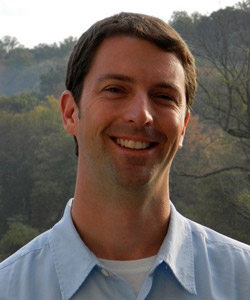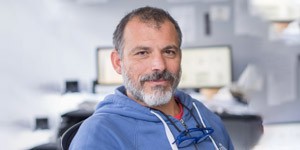By Guillermo Moreno-Sanz

Dr. Moreno-Sanz has authored more than 30 scientific articles and 3 patents describing the role of the endocannabinoid system in pain perception. Graduated in Biochemistry and Organic Chemistry from the University of Zaragoza, he obtained his PhD in Neuroscience from the Complutense University of Madrid, in Spain. He gained extensive international experience with long-term fellowships in the Netherlands, Italy, and the United States, developing most of his academic career at the University of California, Irvine, where he discovered a new class of cannabinoid analgesic with high clinical potential. In 2017, he acted as a consultant to the National Academies of Sciences of the United States in the preparation of the report "The health effects of cannabis and cannabinoids" and later founded Abagune Research to offer scientific advice and R&D solutions to the international cannabis industry. In 2020 he assumes the scientific and medical direction of Khiron Life Sciences in Europe.
Meet the Experts is a series of interviews conducted by experts from the field of Cannabis to world leaders in research and clinical practice of Cannabis as medicine.

Dr. Ryan Vandrey is an experimental psychologist with degrees from the University of Delaware (BA) and University of Vermont (PhD). He is currently a Professor at the Johns Hopkins University Behavioral Pharmacology Research Unit (BPRU).
Dr. Vandrey's research focuses primarily on the impact of route of administration, dose, and chemical composition of cannabis products on resultant drug effects and pharmacokinetics.
In addition, Dr. Vandrey has been involved with a broad range of studies related to the risks and benefits of medicinal cannabis use, the effects of cannabis use on sleep, cannabis withdrawal and the treatment of Cannabis Use Disorder, cannabis product testing, and developing measures of cannabis use behavior.
Guillermo Moreno: Ryan, could you tell us how did you first got involved with cannabinoid research? Do you also conduct non-cannabis related research?
Ryan Vandrey: I first got involved in cannabis research as a graduate student working in the lab of Alan Budney at the University of Vermont. It was not intentional that I study cannabis (versus other drugs), because prior to graduate school I had worked on research related to other drugs of abuse such as cocaine, heroin, alcohol, benzodiazepine, and tobacco. I was simply enamored with behavioral pharmacology in a broad sense! I also was Alan's first grad student, and he was just starting his own studies characterizing cannabis withdrawal, so it was kind of serendipitous more than intentional. Over the years I have done a fair amount of work related to nicotine/tobacco and the use of contingency management in the treatment of substance use disorders, but cannabis has been my primary focus.
GM: Your research was initially focused on cannabis dependence and withdrawal. What are the differences between inhaled and oral THC with regards to addiction? What do you think of using oral cannabis extracts containing THC to help cope with cannabis use disorders?
RV: It is important not to lose sight that THC is a substance of abuse. Oral routes of administration have less risk of addiction compared to "faster" routes of administration such as inhaled, intranasal, or intravenous, simply due to differences in pharmacokinetics, but addiction to oral dosing is certainly possible. Though I studied oral THC as a potential treatment for those with addiction to inhaled cannabis, I abandoned it as a viable treatment other than for temporary use in very hard to treat cases. The reason is that, although oral THC can eliminate cannabis withdrawal, it still produces the same magnitude of drug effect and has the same risks associated with use (e.g. cognitive impairment, negative impact on daily functioning) as inhaled cannabis. Inhaled cannabis use is not associated with the same level of substantial pulmonary health risks as tobacco cigarette use (e.g. lung cancer), so the harm reduction argument for switching people from inhaled to oral cannabis just doesn't hold up from a public health perspective.
GM: When did you transfer to Johns Hopkins University and how did that affect your career? You started collaborating with Marilyn Huestis, probably the biggest authority in cannabis pharmacokinetics. What was your experience working with her group?
RV: I moved to Johns Hopkins after completing my PhD at the University of Vermont in 2005. The group that I work with at Hopkins is world class and we have the luxury of some great resources and excellent institutional support for what we do. My work with Marilyn Huestis began shortly afterwards, probably in 2009 or so. She is fantastic and her impact on my thinking has been substantial. She showed me the value in collecting biospecimens in the context of conducting our behaviorally focused studies. Aside from that, she is always fun to talk to as she has immense enthusiasm for science and discovery and a wealth of knowledge about cannabinoids.
GM: In 2018 you wrote an editorial regarding the controversies of steering policy and medicine on cannabis access with insufficient data. What is your take on this issue and how does it feel with you look back at that time?
RV: I loved writing that paper and feel it still holds weight today. Though cannabis policy has evolved considerably since then (many more countries and more local jurisdictions have legalized access to cannabis), there is a lot of science that remains to be done, and I feel that regulations of cannabis products in many areas are insufficient. I continue to worry that there are many retail products available to consumers containing many molecules for which there is little or no scientific data regarding safety or toxicity (e.g. CBG, THCV, THC analogues), and that many places allow for cannabis products to mimic branding and packaging of commercial food products, which can lead to accidental ingestion. In the U.S. the multitude of hemp/CBD products being purchased by millions of people for health-oriented use are not held to the same manufacturing standards as prescription or over-the-counter medicine. The outbreak of lung disease among healthy young adults using vaping devices a couple years ago also highlights the need for product safety testing prior to retail availability. I also really think more research needs to be done to figure out how best to integrate medicinal cannabis use into society in a manner that protects both the individual patient and public health (e.g. need to both ensure access to medicine and also keep roads and workplaces save from individuals who are impaired due to cannabis).
GM: That year, at ICRS in Leiden, you presented a proposal of a core assessment battery for conducting observational studies with cannabis. I still remember the excitement in the auditory about the incipient development of a real-world evidence base. How has been the experience like during these years? Observational evidence is often touted by experts as low-quality, what do you think of that? Is it enough to steer medicine and policy?
RV: Like anything else, I feel that there are varying levels of quality and rigor in the conduct of observational studies. Though they lack the rigor of a randomized controlled clinical trial (RCT), they can provide extremely valuable information that could then be utilized to identify areas to target with RCTs. For example, in one of our recent observational studies, we were able to show that individuals using medicinal cannabis had lower levels of anxiety and depression compared to individuals who were contemplating using cannabis but had not yet started. Those that ultimately initiated cannabis use had reduced anxiety and depression levels, which approximated the baseline differences observed in this study, but those who never used cannabis maintained higher levels of anxiety and depression than both other groups. Though this type of study design is still subject to bias due to expectancy, it does show an interaction between cannabis use status and mood that is systematic and worth additional evaluation in a placebo-controlled trial. Thus, though I don't believe observational studies can replace RTCs, I do believe that they are fast and inexpensive methods of triaging topic areas for which to focus limited resources on the conduct of RCTs.
GM: Some of you colleagues in that endeavor notoriously joined the "cannabis industry", such as Mark Ware and Marcel Bonn-Miller, while others stayed in academia, such Staci Gruber. What has been your experience like with the cannabis industry?
RV: In the U.S. cannabis industry there are various types of "players" to consider. Some are in the business to make quick money and that is all. Some are proponents of legal use at all costs and want to push the boundaries of dose and safety. Others are very much invested in developing cannabis as a medicine because they see the tremendous potential for breakthrough medications development. In my industry relations, I have tried to align myself with individuals and companies taking a more pharmaceutical approach to cannabis product development, ensuring product consistency and safety, and also that are interested in advancing science. There are many businesses that meet those standards, but unfortunately also many that do not. There is a lot of misinformation about cannabis efficacy and safety that is propagated by the cannabis industry and a lack of investment in science by the industry broadly speaking. I'd like to see a better job of the industry and regulators in policing this.
GM: Spain is currently on the brink of stablishing policies to regulate the medicinal use of cannabis. What aspects are important to consider when stablishing access to these types of medicines?
RV: I believe there are some key features to a medical cannabis access program that I find critical to success: 1) The products made available to patients need to meet the same standards set for all other medicines. The products should be reliable, consistent, and free from contaminants. They should also be packaged, branded, accessed, and advertised in a manner consistent with other medicines. 2) Medical health professionals should be educated and involved in the process of deciding whether an individual patient is eligible to receive cannabis-based medicine and should provide guidance on product selection and dose. In the U.S., this unfortunately is often not the case. 3) Data should be collected to report on the impact of granting access to cannabis for medicinal purposes on the health of the patients using it as well as on public health. This data should be used to inform the regulation and continuation of the program over time.
GM: In your opinion, do medicinal cannabis national programs disincentivize randomize-clinical trial on cannabis-based products? None of the authorized medications, Sativex and Epidyolex, are approved for chronic pain or generalized anxiety, which are the main two reasons for medicinal cannabis use. Is the current evidence available enough to support the use of cannabis in these indications?
RV: Until more RCTs are completed, there unfortunately remains a lot of trial and error in medicinal cannabis use. As more data accumulates, more precision will come to bear. At this point I would not consider cannabis a first line therapy for any health condition in most cases, but I also think there is sufficient data to warrant use of cannabis in many cases where traditional therapies have failed (either due to poor efficacy or adverse side effects). This decision, like all medical decisions, should be made on a case-by-case basis between the patient and their provider. For this to work though, we need confidence in the quality control of the product and data to inform decisions. Insurance coverage for truly medicinal use is also a major issue that I hope is realized in Spain and elsewhere soon, because cost is what perpetuates the black market and the survival of companies that lack good quality control processes.


